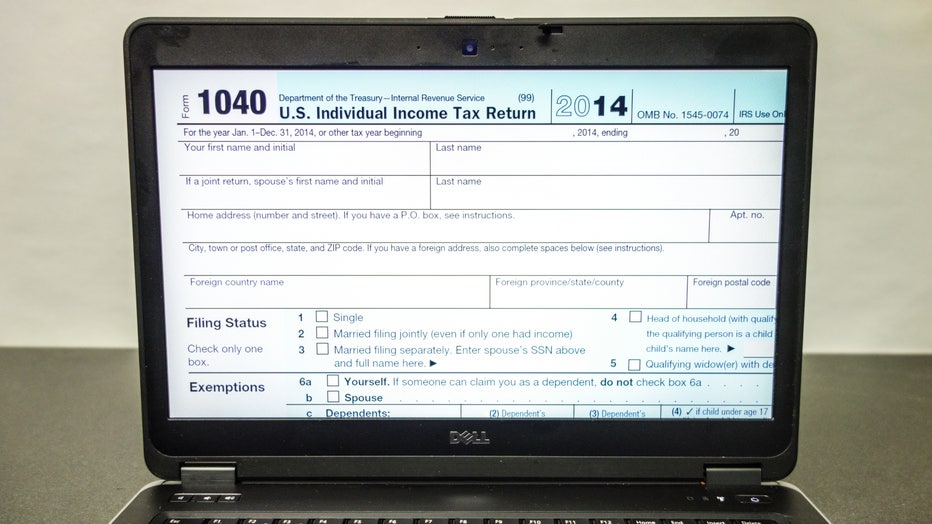IRS inflation adjustment could lower your tax bill in 2023
Tax bills will be lower for millions of Americans next year thanks to high inflation.
The IRS on Tuesday announced 2023 federal tax rates adjusted for inflation. It’s something the agency does every year, but because of the drastic rise in costs for food, gas and other necessities, this year’s adjustment is more than years past.
The changes are meant to help Americans whose earnings haven’t kept up with the increased cost of living. The percentages taxpayers will pay based on their income will remain the same, the IRS said, but the minimum income to enter a higher tax bracket will rise by about 7%.
RELATED: Here’s how much money you should be saving per paycheck
Tax rates aren’t the only thing adjusted for inflation. The IRS also made changes to the standard deduction filers claim on their returns, as well as the Earned Income Tax Credit and the transportation fringe benefit, among others.
According to the IRS, the following changes will take effect in 2023:
Standard deduction for married couples filing joint returns

A view of an IRS 1040 Tax Form on a Laptop computer screen being prepared for an electronic filing.
The standard deduction for married couples filing jointly for tax year 2023 rises to $27,700, up $1,800 from the prior year.
Standard deduction for single taxpayers and married people filing separately
For single taxpayers and married people filing separately, the standard deduction rises to $13,850 for 2023, up $900, and for heads of households, the standard deduction will be $20,800 for tax year 2023, up $1,400 from tax year 2022.
Marginal tax rates in 2023
For tax year 2023, the top tax rate remains 37% for single taxpayers with incomes greater than $578,125 ($693,750 for married couples filing jointly). The other rates are: 35% for incomes over $231,250 ($462,500 for married couples filing jointly); 32% for incomes over $182,100 ($364,200 for married couples filing jointly); 24% for incomes over $95,375 ($190,750 for married couples filing jointly); 22% for incomes over $44,725 ($89,450 for married couples filing jointly); 12% for incomes over $11,000 ($22,000 for married couples filing jointly).
The lowest rate is 10% for single filers with incomes of $11,000 or less ($22,000 for married couples filing jointly).
Alternative Minimum Tax exemption 2023
The Alternative Minimum Tax exemption amount for tax year 2023 is $81,300 and starts to phase out at $578,150 ($126,500 for married couples filing jointly - the exemption starts to phase out at $1,156,300). The 2022 exemption amount was $75,900 and began to phase out at $539,900 ($118,100 for married couples filing jointly - phase out started at $1,079,800).
Earned Income Tax Credit 2023
The Earned Income Tax Credit amount is $7,430 for qualifying taxpayers who have three or more qualifying children, up from $6,935 for tax year 2022.
Transportation and parking benefits 2023
In 2023, the monthly limit for the qualified transportation fringe benefit and the monthly limit for qualified parking increases to $300, up $20 from the limit for 2022.
Social Security benefits to jump by 8.7% in 2023
The IRS’s adjustment comes about a week after the government announced that millions of Social Security recipients will get an 8.7% boost in their benefits in 2023.
The cost-of-living adjustment means the average recipient will receive more than $140 extra a month beginning in January, according to estimates released by the Social Security Administration.
READ MORE: How does Social Security work? Your benefits increase questions answered
The boost in benefits, the biggest in 40 years, will be coupled with a 3% drop in Medicare Part B premiums, meaning retirees will get the full impact of the jump in Social Security benefits.
About 70 million people — including retirees, disabled people and children — receive Social Security benefits. This will be the biggest increase in benefits that baby boomers, those born between the years 1946 and 1964, have ever seen.

